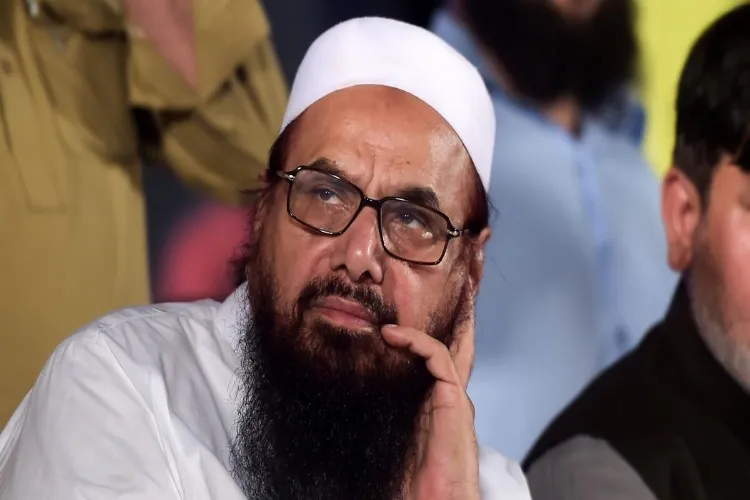New Delhi
In a major development that could be the beginning of an end to the cozy relationship between Pakistan’s deep state and terrorist organizations, an anti-terrorism court in Pakistan has sentenced Mumbai attack mastermind and Jamaat ud Dawa (JuD) chief, Hafiz Saeed, to 32 years in jail in two terror financing cases.
Hafiz Saeed is the mastermind of the 2008 Mumbai terror attacks carried out by his outfit Lashkar-e-toiba. He is also an UN-designated terrorist and carried a 10 million dollars bounty on his head.
The court also imposed on Saeed a fine of PKR 3.4 lakh on him. The court also ordered the government to confiscate Hafiz’s properties.
The Anti-terrorism court (ATC) passed the sentence in two cases registered by the Counter-Terrorism Department of Punjab Police.
“In the 21/19 and 99/21, he was sentenced for 15.5 years and 16.5 years, respectively,” news agency PTI quoted an official as saying.
Hafiz Saeed’s Markaz-dawah at Muridke near Lahore is the biggest indoctrination center for jihadis. They are brainwashed in the name of religious studies at this sprawling township of a Seminary before being sent for arms training to other places. Many foreign journalists have visited the Dawah Markaz and described its facilities. Hafiz Saeed’s Dawah is the mother organization of the Lashkar-e-toiba that was involved in the dastardly Mumbai attacks.
However, Hafiz Saeed is yet to be handed over to India for facing trial in the Mumbai attack case.
The Financial Action task Force (FATF) has placed Pakistan in the grey of countries that do not have laws and a system compatible with the global watchdog's guidelines to prevent the terrorists from using its financial system to fund their activities.
The FATF and country report of the US State Department had pointed out the freedom enjoyed by the UN-designated terrorist like Hafiz Saeed as a reason for Pakistan's perceived involvement in global terrorism.

